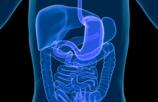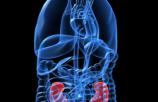Conditions and illnesses
Conditions and illnesses
Heartburns are no fun. Here is what to do if your child suffers from it.
Conditions and illnesses
Dr. Harley Eisman, Director of The Montreal Children’s Hospital’s Emergency Department says parents can help ease kids’ anxieties and health concerns by establishing a routine, and monitoring their behaviour.
Conditions and illnesses
For children with asthma, the cold and flu season can be especially difficult, since both colds and the flu can make asthma symptoms worse.
Conditions and illnesses
Most kids, at one time or another in their childhood or adolescence, will need to take prescription medication to help treat symptoms of a condition or illness. As a parent, you’re the one who has to make sure that—as the old song goes—“the medicine goes down.”
Conditions and illnesses
True. Confusion can arise because the words “tumor” and “cancer” are often regarded as the same thing. A tumor is not necessarily cancer, however.
Conditions and illnesses
Kidneys aren't organs you think about very often, but they are vital to our survival, because they filter waste, extra fluid and salt from the body. When the kidneys stop working properly (known as kidney failure or kidney “injury”), the person may need acute (short-term) or chronic (long-term) dialysis and kidney transplantation.
Conditions and illnesses
The kidneys are powerful organs that play a vital role in keeping the human body healthy. What’s more, they perform not just one but three essential functions in our bodies.
Conditions and illnesses
A: There are many factors to think about when considering organ donation, both for the person receiving the graft and the person donating a kidney.
Conditions and illnesses
False. Kidney disease takes many different forms and may lead to kidney failure. Although there are ways to treat people with kidney failure—namely dialysis or kidney transplant—these treatments are not actual cures for kidney disease.
Conditions and illnesses
Epilepsy comes from a Greek word meaning 'possession.' The Greeks believed seizures were caused by demons, and regarded them as a supernatural phenomenon. The true nature of epilepsy has long been distorted by myth and fear, and people continue to hold mistaken notions about the disorder.










